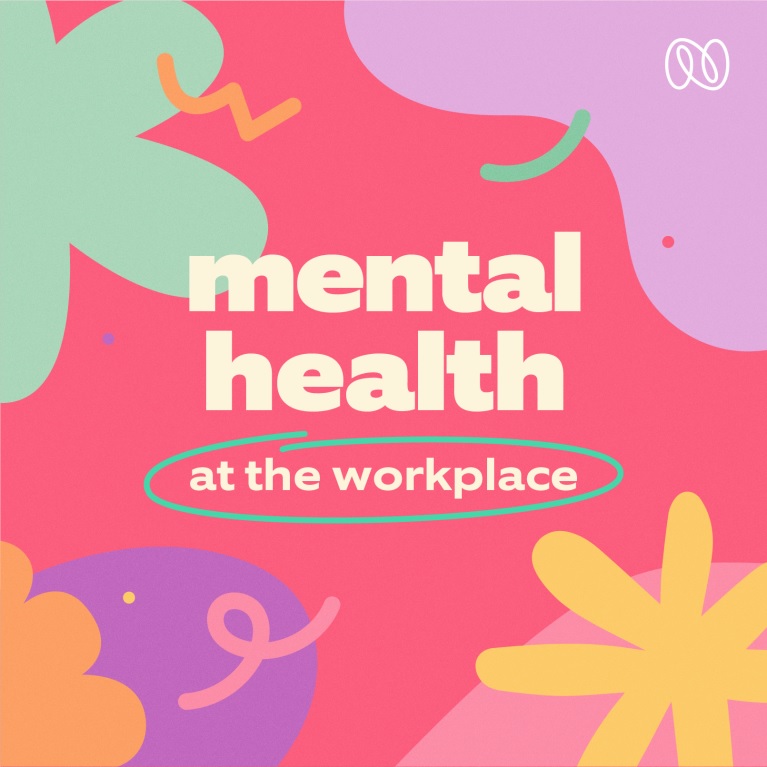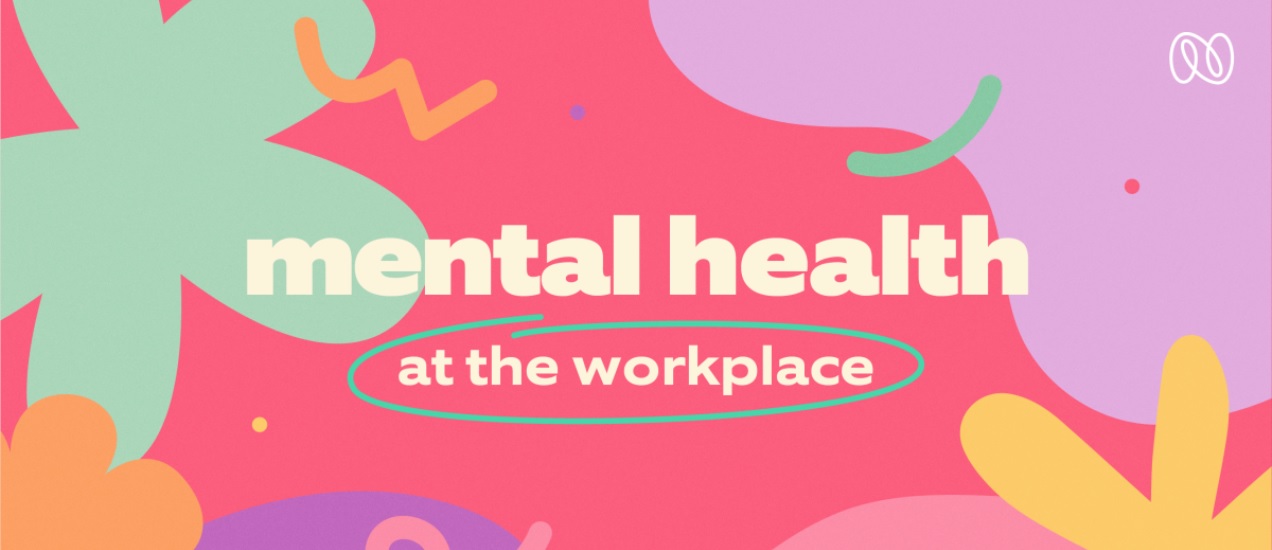We spend a minimum of 40 hours working every week. If we work for an average of 40 years, the amount of time spent at work totals a whopping 83,200 hours. It's only natural that our work life significantly impacts our mental state and often causes serious mental health concerns.
A study by The American Institute of Stress suggests that in the United States, 80% of workers feel stress on the job and need help in better managing their work. The same study also indicated that stress levels intensified post-COVID-19 due to factors like virtual working and isolation.
Consequently, organizations rolled out measures to help their employees cope. As an organization built around CARING values, Nagarro has always strived to create a psychologically safe workplace. How do we accomplish this?
Nagarro creates a workplace that empowers every individual to speak up when they need help and lends every person in distress an empathetic ear. Our non-hierarchical, transparent, and CARING work culture reinforces a holistic work environment. We back it up with our employee-friendly working rules, like working from anywhere and flexible work hours, to ensure a healthy work-life balance.
In this blog, we divulge more about how we break the walls around mental health conversations with our CARING values.
Some of the key factors affecting mental health at workplace are: |
||
| Expecting high output despite poor working conditions and inadequate infrastructure. | Excessive workload causing a skewed work-life balance. | Lack of control over one’s job role and ambiguity of tasks. |
| Job insecurity because of factors like slow economy and emerging technologies. | Discrimination and inequality based on age, gender (that includes women and the LGBTQ+ community), demography, and social status. | Increased peer pressure due to social media. |
| The need to differentiate and stand out among team members. | The pressure to retain existing clients and acquire new ones (especially those in leadership positions and sales). | Virtual ways of working leading to less and less socialization and bonding with colleagues. |
How Nagarro fosters positive mental health at the workplace
At Nagarro, we believe in going deeper to address the root cause of work-related stress. First, we ensure a workplace where everyone is empowered to voice their opinions and concerns and comfortable sharing their problems with colleagues without fearing judgment.
Our non-hierarchical structure drives open communication through multiple platforms where senior leaders are often open about their struggles. Such conversations help in two ways. One, it breaks the taboo, and second, it encourages others facing similar issues to come forward and seek help. For instance, last year, Manas Human, the Custodian of Entrepreneurship in the Organization (CEO), shared his struggles with bipolar disorder, encouraging many others to come forward and share their journeys.
Nagarro's non-hierarchical structure opens up the doors for communication and empowers colleagues to have candid chats with whoever they wish to.
Viyom Jain, a Managing Director and Global Business Unit Head of CRM & ERP, says that Nagarro's non-hierarchical model encourages colleagues to converse openly with their delivery managers, project heads, or even the CEO. "This plays a huge role in ensuring a holistic work environment as I believe that colleagues feel much better if they are heard," says Viyom. Conversely, they can feel neglected, worsening their insecurities and apprehensions.
Cecelia Young, who works with the HR team at Nagarro, emphasizes peer support. "At work, being someone's "tree hole" or someone they confide in is an honor. If someone wants to talk to you, listening and being there for them is important. A mental illness is nothing to be ashamed of, and empathy can go a long way. It is important to support our colleagues and friends who may be going through difficult times," she says.
These candid conversations further create visibility and make it easier to spot the teething problems our colleagues face. Antoni Aloy, General Manager, APSL (merged with Nagarro last year), says that our organizational culture is driven by CARING, so looking after our colleagues comes naturally to us. He says our industry has the highest ratio of introverted individuals susceptible to mental health issues.
He says, "An open company like Nagarro, where we can talk and share with people who understand the complexities of the job and the mindset of techies, minimizes the impact." He adds that while this minimizes the problem, it doesn't address it completely, and we must treat mental health illnesses in the same way we would treat diabetes or any other disease.
The company culture is driven by strong CARING values, which means everyone comes forward to support each other in times of distress.
Once we have identified the problem, the next step is to offer support in various ways to help the individual cope better. Viyom says that when approached by someone facing work-related stress, he typically advises them to take a break for a few days or a week and leave the station with family.
If they are stretched out or stuck in some tasks, managers try to support them from other colleagues or the internal architecture team for required technical help/additional bandwidth. At times, we also consider changing projects for a colleague, with the help of the resource allocation and HR teams, if the project is stressful and impacts the colleague's mental well-being.
Since the HR team is the first point of contact with any employee, they can help inculcate a sense of belonging and freedom that empowers them to seek help in stressful situations.
Pauline-Wendy Kunene, another HR professional at Nagarro, says, "Employee mental health is crucial for a thriving workforce, and HR professionals play a vital role in fostering it." She lists out the various ways through which the Nagarro team is accomplishing this.
- Comprehensive wellness programs are designed to address issues like fatigue or sickness is extremely beneficial. These programs include workshops, mindfulness training, and resilience training to equip employees with essential skills.
- Confidential reporting assures employees of complete privacy and HR support.
- A culture of accessibility and inclusivity at the workplace educates employees on the various policies and tools available for support, including training and resources.
- Arming managers and leaders with the right knowledge and skills helps identify signs of distress, engage empathetically, and refer employees to appropriate channels. Training programs help leaders develop their and their team's emotional resilience and intelligence.
- Sessions by mental health experts provide valuable insights and tailored support in line with the company's values and culture.
- Engagement activities help build rapport among employees and uncover issues that may not be apparent otherwise. These activities also strengthen the sense of belonging and boost morale.
Further, Nagarro's work-from-anywhere and flexi-hours culture, implemented after COVID-19, helps colleagues ensure ample time to spend with their families and grow outside their professional lives. "I love to unwind with my children and can do that without compromising on work due to the flexible work hours," says Megha Jha, Associate Director of Marketing (Employer Branding and PR).
Thanks to this policy, many colleagues have permanently moved to their hometowns, allowing them to live and enjoy their time with their families. We also created a robust digital experience to connect people with each other, promoting the exchange of professional and personal information. We have also launched hives across India and elsewhere, where regular get-togethers ensure those working remotely don't feel disconnected.
At the individual level, we encourage people to follow their hobbies, passions, and inspirations. Nagarro recently sponsored Brigid Wefelnberg, a Nagarrian, and a passionate ultra-marathoner, for her Ultrathon, and the entire company rallied behind her to support her long-lasting dreams.
Thanks to our work-from-anywhere model, colleagues can now spend more time with their families, and work even while traveling.
Viyom Jain says that he tries to mingle with hobbies in his work. "So, one of my hobbies is writing with fountain pens, so I make a lot of notes using my fountain pens in the meetings. That has a double advantage – keeping me focused during meetings and satisfying my passion for writing with my favorite fountain pens," says Viyom.
Feeling the blues?
There is a long way to go before normalizing mental health conversations in the workplace, but they are key to ensuring a healthy and holistic workplace environment. We all go through such phases and shouldn't avoid discussing our issues with colleagues. They have faced similar issues and can help you out. The mantra is to open up and discuss your problems rather than keeping yourself trapped in your mental pressures.
Liked the article? Reach out to our authors and share your views! To know about more such initiatives by our teams, check out our CARING page here.






